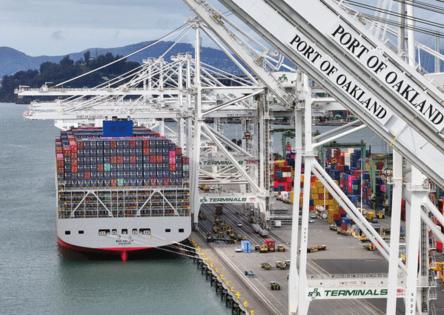Tariff impact seen ending streak of benign US inflation readings
Published in News & Features
Economists have long been warning of a tariff-driven boost to U.S. inflation. The next report on consumer prices will put their conviction to the test.
After four months of overestimating readings on the consumer price index, forecasters are predicting an acceleration in June data due from the Bureau of Labor Statistics on Tuesday. Advances in tariff-exposed categories including furniture, toys and recreational goods, as well as cars, are seen putting an end to the streak of benign figures.
It’s a tough position to be in for the Federal Reserve, which has defended holding interest rates steady this year in anticipation of tariff-driven inflation that hasn’t shown up yet. Another tame number would all but certainly draw more ire from President Donald Trump — who’s repeatedly called for the central bank to lower rates and criticized Chair Jerome Powell personally.
There’s widespread consensus among Fed officials and private-sector forecasters that inflation will turn higher over the summer as businesses start passing on Trump’s tariffs to consumers. While many firms chose to initially shield customers by stocking up on inventories in advance or even absorbing part of the higher costs at the expense of lower margins, some are now running out of options.
“You’re still in an environment where businesses used a broad array of strategies to mitigate the effect of duties,” said EY-Parthenon Chief Economist Gregory Daco, who expects tariffs will drive a third of the overall monthly advance, with a bigger hit to come later in the summer. “But over time that effect is going to increase.”
That threat was amplified last week as Trump ramped up his tough talk on trade, unveiling higher tariffs on copper as well as goods from Canada, Brazil and other countries. Some of the more punitive levies are now expected to take effect in August after being pushed back from July, and Trump said he won’t extend the deadline.
“Certainly now that the president seems to be throwing a volley of new higher tariff rates at a number of countries, we’re certainly not out of the woods yet on a tariff inflation threat,” said Scott Anderson, chief U.S. economist at BMO Capital Markets.
As of May, roughly three in four companies surveyed by the New York Fed were raising prices to make up for higher costs from tariffs. Other surveys have also indicated firms are inclined to hike prices, and companies say as much as well: Toyota Motor Corp. is planning to raise prices this month, and retailers like Nike Inc. are aiming for the fall.
Beyond goods, economists and policymakers will also play close attention to services inflation. Some forecasters argue that categories that have been tame in recent months, including airfares and hotel stays, could show some strength in June, contributing to the expected acceleration in overall CPI.
Fed impact
The minutes of the Fed’s June policy meeting, released last week, showed officials are divided as to how tariffs will impact inflation and therefore the course of monetary policy. Powell is wary of prices rearing back up again.
“We expect to see over the summer some higher readings,” Powell said at a conference in Portugal on July 1. He added that policymakers are prepared to learn the impact could be “higher or lower, or later or sooner than we expected.”
Investors are pricing in almost no chance of a rate cut at the Fed’s meeting at the end of this month. Some officials, such as Governors Christopher Waller and Michelle Bowman — both Trump appointees — have signaled openness to a cut in July if inflation remains muted. Others have suggested a move later in the year is more likely.
“I think we’re just too tight, and we could consider cutting the policy rate in July. That’s my view,” Waller said Thursday at an event in Dallas. “I’m kind of in the minority on this, but I’ve tried to lay out very clearly in economic terms why we could do this. It’s not political.”
Even with Trump’s latest tariff threats, Samuel Tombs, chief U.S. economist at Pantheon Macroeconomics, notes Trump has backed down before and could do so again.
“That’s not to say that there couldn’t again be a temporary flare up — a few weeks where tariffs are at extremely high levels,” Tombs said. “But businesses and supply chains are evolving, they’re getting used to factoring in this volatility.”
(With assistance from Matthew Boesler and Chris Middleton.)
©2025 Bloomberg L.P. Visit bloomberg.com. Distributed by Tribune Content Agency, LLC.







Comments